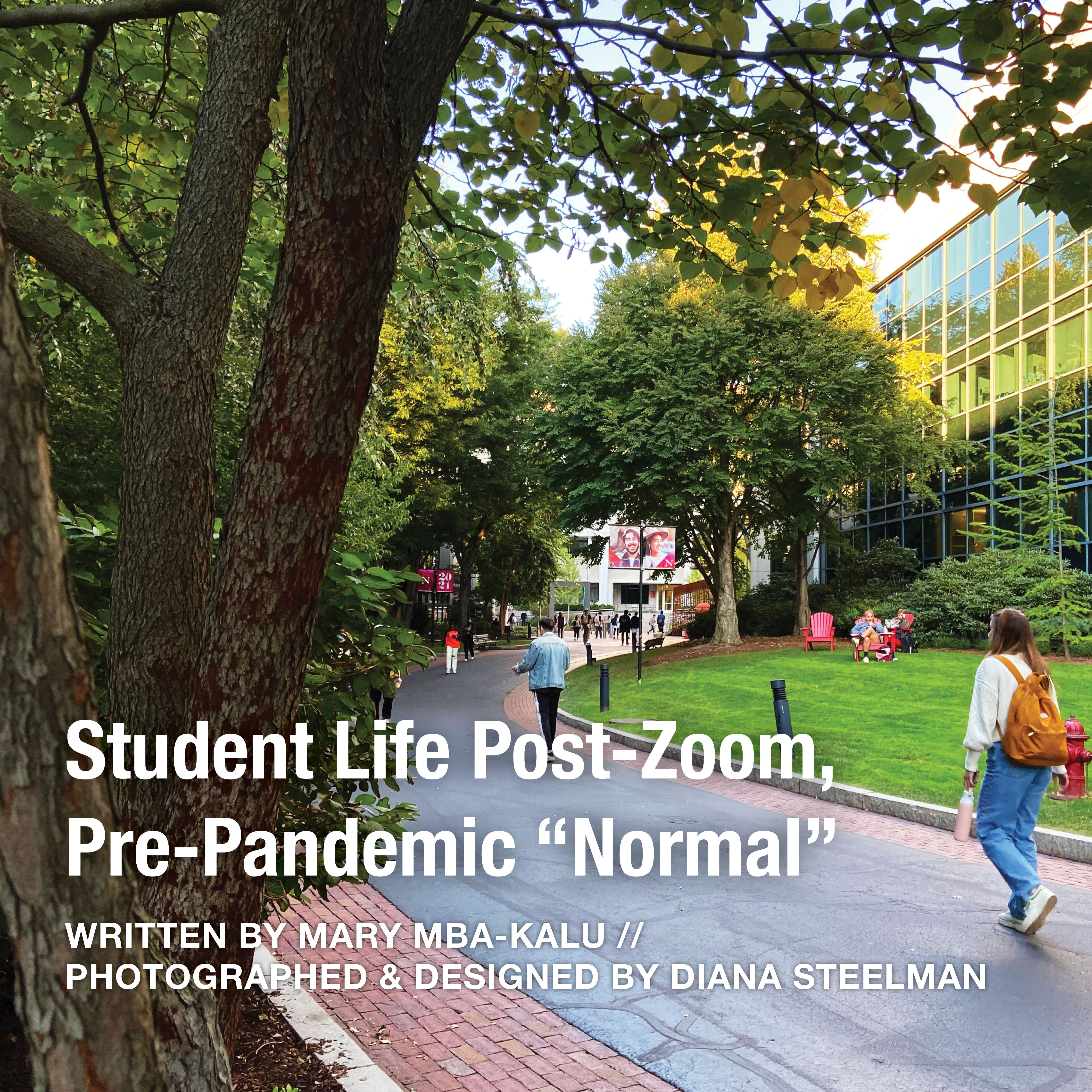
With new cases, deaths, and hospitalizations from COVID-19 on the decline, Northeastern University students are rushing back to campus after a year of remote learning.
Throughout the course of the pandemic, some students have graduated, some are experiencing campus life for the first time, and most have moved up two grade levels, with the exception of students who took the pandemic as an opportunity to take a gap year. Many students feel that being back in person feels like a completely new experience.
COVID anxiety is still in the air, especially with the overwhelming number of people back on campus, but it’s safe to say that Northeastern is buzzing with excitement for a new ‘normal’.
The general consensus at Northeastern is that students are happy to be on campus. The past year has been surreal for college students as many of them were stuck in a monotonous, detached cycle of learning with little social interaction. Many also suffered micro-losses: no access to sports and volunteering, no quiet study spaces, not receiving co-op placements, the cancellation of co-ops and internships, no social events, isolation from peers and loved ones, and so on. These losses during the pandemic have triggered social anxiety and depression for many.
Being back on campus provides meaningful opportunities for students to connect with others through classes, clubs, and social events. Being back to in person learning provides the opportunity for students to feel more engaged and present on campus.
However, isolation creates a decline in social skills, and it can be difficult to make friends with masks on. Thankfully, students are going through this difficult time together and at least have the chance to interact with each other outside classroom settings, unlike last year. Although it’s still a bit hard and awkward to converse and build new relationships, most find it much easier in person than on Zoom. But the process of making friends may seem more overwhelming for students that are new to the Northeastern campus.
Apart from enjoying more social interactions, students now have the opportunity to immerse themselves in their studies in person. Research from Inside Higher Ed showed that 80% of college students found it difficult to stay motivated to finish their work or attend classes while learning virtually. This may have been because some students were in various time zones and had to either stay up late or wake up early for classes. Some may have had to manage online learning asynchronously. Many students last year didn’t have access to the Northeastern library space or printing services, and students who weren’t able to afford online textbooks couldn’t rent physical books from the bookstore. A lot of students also inevitably missed learning alongside their peers. It’s comforting to know that many students are able to do these things now that they’re back in person.
Although it’s nice to be learning in person again, there are some virtual learning experiences that Northeastern should consider keeping to benefit students, especially those on co-op and those with disabilities. Professors recording lectures and uploading them onto Canvas was a huge help to many students. Recorded lectures allow students to better understand course concepts. If classes are still recorded, disabled students will also have the option to join classes in-person or online. Additionally, virtual access to live events and club events are extremely important for many students and their time management. Maintaining a balance of online and in-person learning will help Northeastern become much more accessible to its students.
Being back on campus can now be described as “more normal”, but pre-pandemic college life is still a ways away. Experts say that a return to a normal, pre-mask mandate society depends on an increase in vaccination rates. Northeastern has done well in assuaging the community’s concerns around COVID with its high community vaccination rate and consistent COVID testing, but Massachusetts residents as a whole still have a long way to go, with only 69.08% of the population having been fully vaccinated. While students remain apprehensive of the next few months, many hope that there will be more lax COVID regulations in 2022.